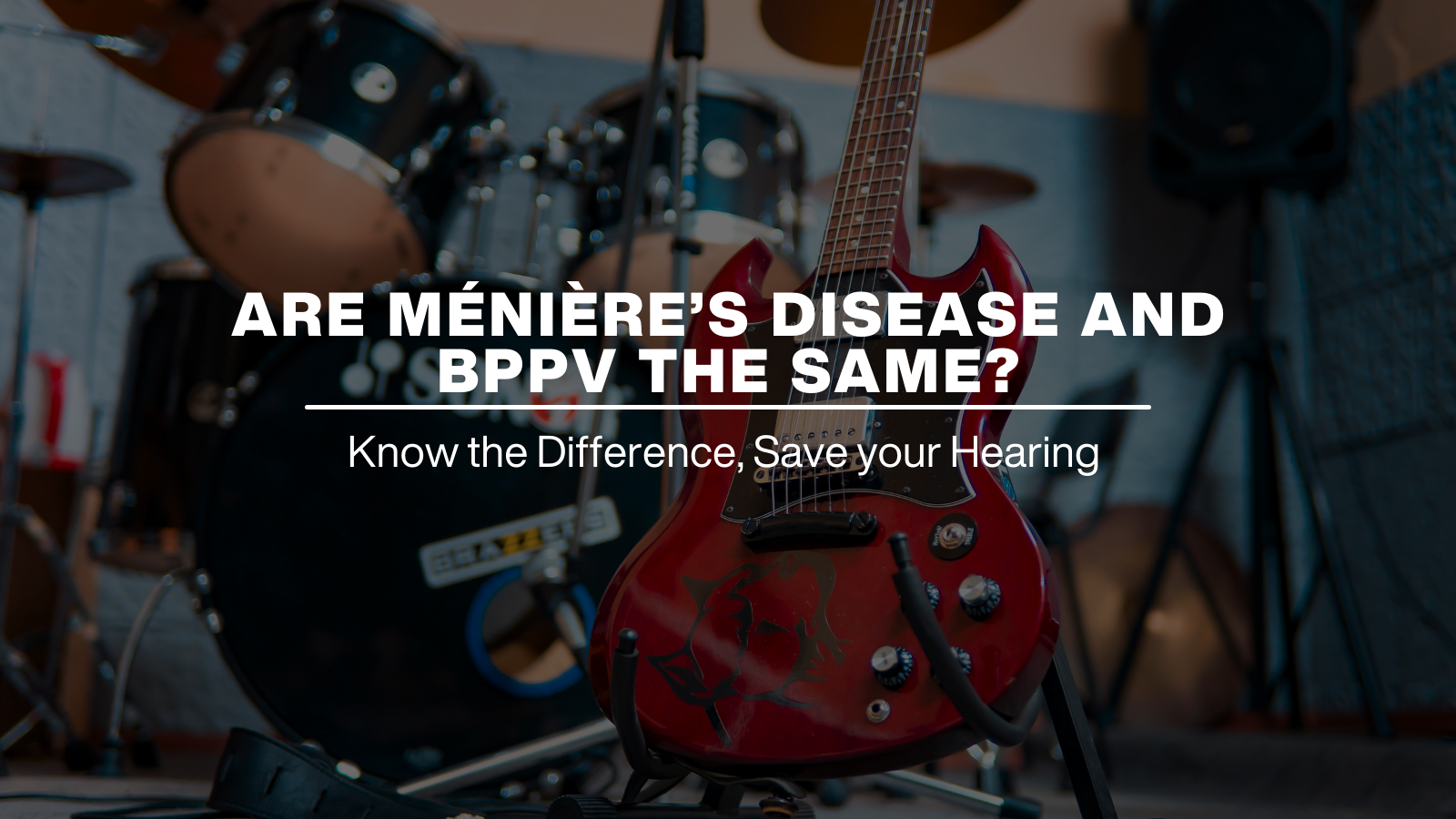Stay in tune with your hearing health
Ménière’s disease is a devastating condition that can lead to irreversible hearing loss, making it especially damaging to musicians or people who love music. Knowing how to properly identify Ménière’s disease is so important because it’s easy to confuse with other, far-less-serious conditions like Benign Paroxysmal Positional Vertigo (BPPV).
While both Ménière’s disease and BPPV can cause deteriorated senses of balance and orientation through vertigo, BPPV is far less serious. BBPV causes no permanent hearing loss and can be cured relatively easily.
For example, one treatment for BPPV is the Epley Maneuver, which consists of a series of movements that you can do for free at home to correctly reposition the calcium crystals within your ears' utricle — the displacement of which causes you to experience the symptoms of dizziness, imbalance, and disorientation associated with BPPV.
While learning that you have BPPV as a musician certainly isn’t a good thing, you can restore proper defenses inside of your ears relatively quickly without much risk of hearing loss.

Learning that you have Ménière’s disease is far worse — especially if you’ve continued to play through the symptoms for a long period of time. To learn more about Ménière’s disease, what symptoms to watch out for, and why catching it early on can help you enjoy a longer, more-fulfilled musical life, continue reading below.
What Exactly is Ménière’s Disease and Can it Be Cured?
No musician knows the devastating effects of Ménière’s disease better than rockstar Huey Lewis, who after decades of performing to adoring fans all around the world announced recently that he had been diagnosed with the disease. As a result of his diagnosis — and the irreversible hearing loss that accompanied it — Lewis was forced to cancel all future performances.
To avoid a fate like Lewis’s, arm yourself with as much information about Ménière’s disease as possible. To start with, Ménière’s disease is thought to be the result of fluid buildup in the compartments of the inner ear, called the labyrinth. This explains why balance and hearing are so drastically affected by the disease, as inside the labyrinth are your semicircular canals and otolithic organs — which control your body’s balance — and your cochlea, which controls your body’s hearing.
Despite knowing that this fluid buildup occurs, it’s still not entirely understood what causes Ménière’s disease to happen in the first place. According to the American Hearing Research Foundation, there is some research to indicate that constricted blood vessels, physical blockage in the ear, abnormal ear structure, allergies, viral and bacterial infections, head trauma, migraine headaches, and autoimmune systems can all play a part in the onset of the disease.
There's no clear consensus on whether or not specific groups of people are more susceptible, but some experts also believe that genetics factor into the equation.
What is known with some certainty, however, are the symptoms that indicate the onset of Ménière’s disease. In combination with your medical record, doctors typically diagnose Ménière’s disease in people with the following symptoms:
- Two or more episodes of vertigo lasting at least 20 minutes each
- Tinnitus
- Temporary hearing loss
- A feeling of fullness in the ear
Prevention & Awareness
There may be a lot of unknowns when it comes to Ménière’s disease, but with just an understanding of these symptoms, you can know what to watch out for throughout your career as a musician. If at any time you start experiencing these symptoms, you can more quickly put the pieces together, consult the help of a doctor, and discover how to manage the disease before it has a chance to cause serious damage.
Ultimately, Huey Lewis serves as a tragic but poignant example of why all musicians need to prioritize and be aware of their hearing health from day one. By not doing so, you risk missing the signs of BPPV, Ménière’s disease, and other hearing-related disorders that make your ears more susceptible to damage. Left untreated, these disorders can limit your ability to create and perform music — or, as happened to Lewis, put a premature halt to your career altogether.
To make sure this doesn’t happen to you, and that you’re able to enjoy creating and listening to music for the rest of your life, make sure you always wear hearing protection like EARPEACE earplugs and arm yourself with the hearing health information above and consult your doctor at the first sign of trouble.




Share:
Hearing Loss And Dementia: The Surprising Link
THIS IS YOUR BRAIN ON MUSIC